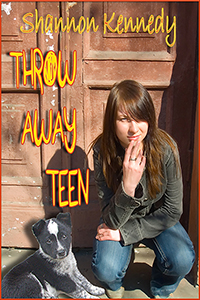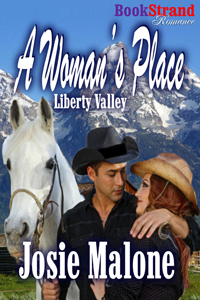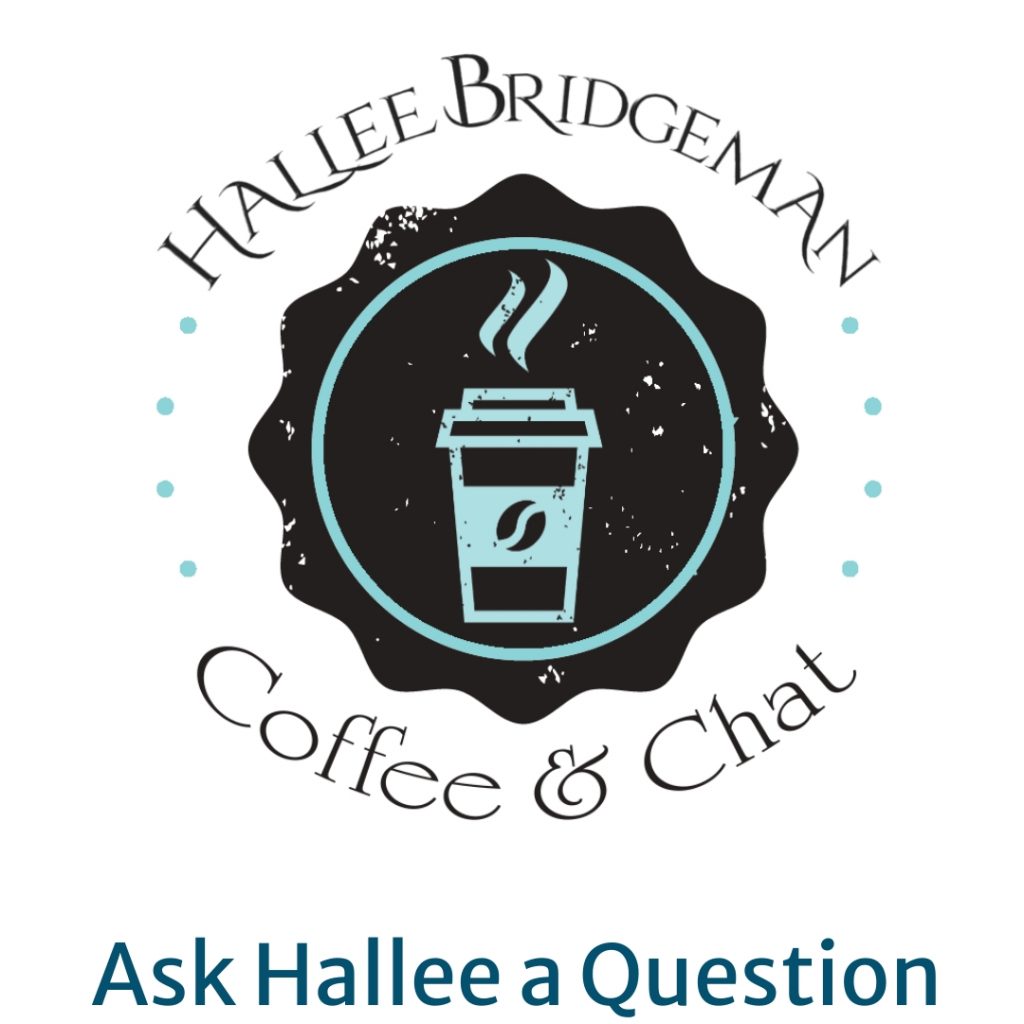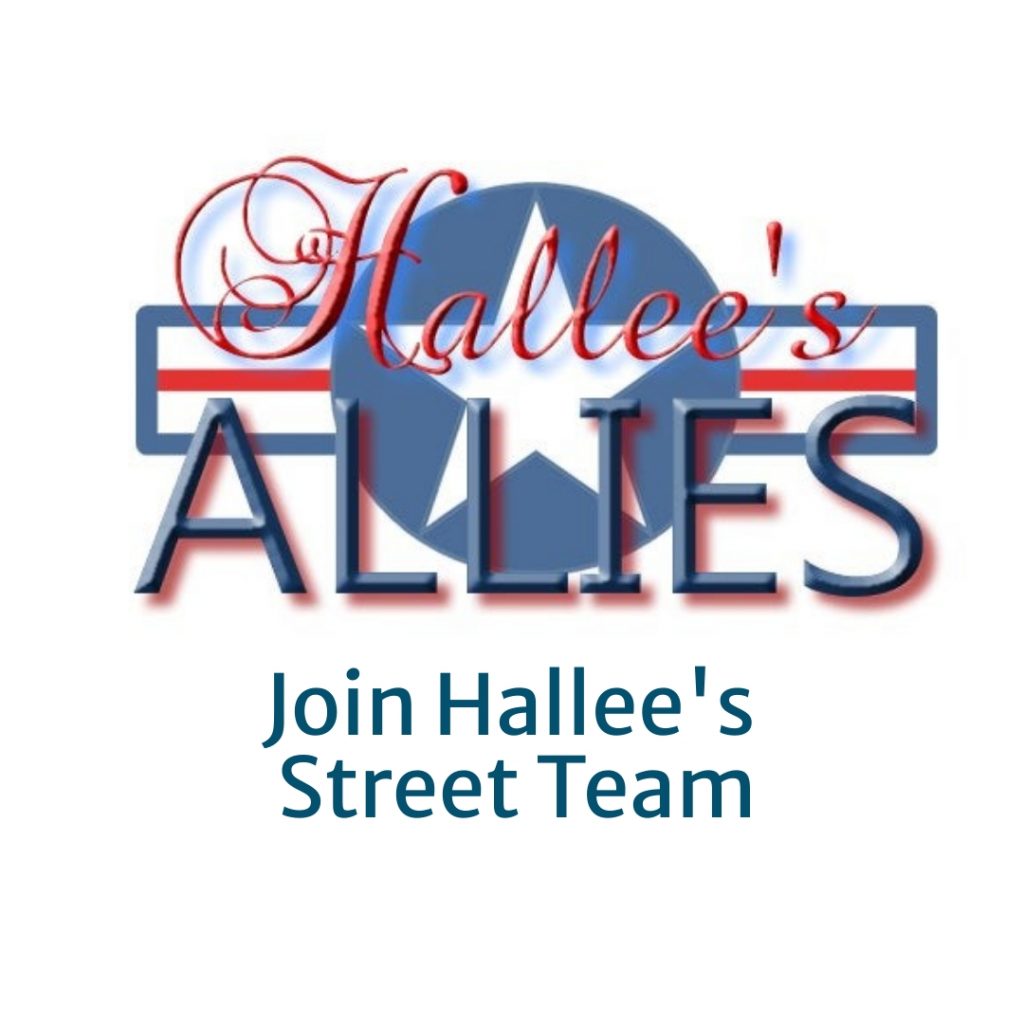Welcome to Readers Write to Know! I asked you, my readers, what questions they would ask their favorite authors if given the chance. This week, I’m so pleased to introduce to you Shannon Kennedy. Shannon is a horsemanship teacher and substitute teacher who comes up with story ideas while she mucks out stalls or drives her bulldozer named Frou Frou. I had the best time with this interview, and hope you enjoy Shannon’s answers to your questions as much as I did.
 Tell us a little bit about yourself.
Tell us a little bit about yourself.
Shannon lives (and works) at her family business, Horse Country Farm, just outside of Granite Falls. Teaching kids to ride and know about horses since 1967, she finds in many cases, she’s taught three generations of families. Her life experiences span adventures from dealing cards in a casino, attending graduate school to get her Masters in Teaching degree, being a substitute teacher, and serving in the Army Reserve – all leading to her second career as a published author. Using her grandmother’s name of Josie Malone, she writes mainstream western romance. Her third book, A Woman’s Place just came out in trade paperback. Throw Away Teen, a young adult novel, will be out in December from Black Opal Books and No Horse Wanted will be a July 2013 release from Fire & Ice YA . Shannon is the newest contributing writer for Mountain Loop exPress.
What is your personal, most effective way to get past writer’s block?
When I attended Washington State University several years ago, I really wanted to find a critique group in Pullman, WA. I did and learned a great deal from the other writers who met once a week at the Skippers restaurant in nearby Moscow, ID. We traded our latest chapters. Then we were expected to read our work from the previous week aloud, getting not only written critiques but verbal ones as well.
The name of the group was Writer’s Bloc, and the expectation of regular submissions to critique along with the assignments due for my English and History courses since I was doing a “double major” meant there wasn’t time for me to opt out. I had to write every day either for class or for critique. As more experienced members told me, it’d be easier to listen to their advice if I brought in the “raw” or “rough drafts.” After all, I’d be revising and polishing that work anyway. I still send my first drafts off to my critique partners and try to write every day.
What inspired you to start writing, or did you always want to write?
I am a writer. I have always been a story-teller. It’s a family tradition. I remember my grandmother as the queen of pithy comments who served putdowns at her Sunday dinners, along with her pot roast. Grandma never swore. It wasn’t ladylike, but insulting someone’s intelligence, morality, behavior, manners and children or mate was an art form. Grandma ran the Pine Tree Tavern below First Avenue in downtown Seattle, and kept a “cuss jar” for her clientele. Funds collected from the foul language paid for the annual Thanksgiving dinner and Christmas party at the bar, while the leftover money went to Children’s Hospital in Seattle.
I started writing down Grandma’s stories as a young teen although I knew nothing about the techniques or mechanics of what would become my passion. Most listeners, my parents, my aunts, uncles, cousins squirmed at her turn of a phrase. I always admired Grandma’s use of language. When I graduated from high school, I was determined to be a writer. My creative writing teacher had told me I had talent and suggested college. I came from a poor, single-parent household, and higher education wasn’t possible. No one in our extended family had ever attended college. The girls got married and the boys went to work.
How did you determine whether to self-publish or seek a traditional publisher?
I have a lot of work on my plate between the family farm which operates as a riding stable year-round, substitute teaching, training horses, and writing at night between 4-6 hours each night, 7 nights a week. I have a great deal of respect for writers able to self-publish, but I am not one of them. It’s hard enough to write my books and then work with my publishers to get them out – if I had to do everything they do – I’d go crazy before submitting the next manuscript.
 Do you have your plotline and character development already laid out before you begin writing a book, or do they develop as you write?
Do you have your plotline and character development already laid out before you begin writing a book, or do they develop as you write?
I’m a total “pantser” so while I have the basic idea – my main characters and the basic conflict, I know the story will continue to evolve as I progress. Of course, once my critique partners have a chance to read the first draft, they will come up with suggestions that I may or may not incorporate. The same goes for my editors who have their own ideas of what will improve the book.
Do you have pre-determined length in mind when you first begin a book?
I always have a lot to say when I’m writing. I know my mainstream western romances will come in at about 100,000 words – my first one was a bit shorter by the time it went through the editorial process. As for my young adult books, they are between 70,000-80,000 words.
What advice do you have for aspiring writers?
The biggest misconception that people have about writing is that it’s easy. It’s not. It takes a lot of hard work, time and dedication to create a book. And then to rewrite it, submit it to friends, colleagues and finally professionals – that is a scary adventure, rather like riding a roller-coaster. Never give up! And a woman shouldn’t wait for anyone to bring her flowers – she should plant her own garden – regardless of what form that garden takes. It can be a rose bush or operating a pony farm – like my heroine did in The Daddy Spell.
What is your preferred method of writing? (computer, pen & paper, etc.)
My computers – I just love them. I have my desktop and an office in my mom’s house – and my laptop down in my cabin. I carry a flash-drive back and forth. However, when I first started writing 35 years ago, I used a pen and pad of paper, then graduated to a manual typewriter, next was an electric. I still have the electronic typewriter that I wrote on until 2005 and I have boxes of completed manuscripts. While I’ve sold 6 books in the past 2 ½ years, it took me 20 years between the time I sold my first book to A Man’s World which I sold to BookStrand in 2010.
How did you make the initial step into writing your first novel. What were some of your major roadblocks and how did you overcome them?
At eighteen, I was fascinated with romance. I had read tons of them growing up and they were my favorite fantasy. I always wanted a hero on a white horse to rescue me although I knew it would never happen. Life in a single-parent household taught reality. Men came with baggage and they always expected women to buy the suitcases. One of my first jobs was on a reserve Army base and my boss allowed me to use the office typewriter to type my first book.
While I happily typed away on my masterpiece, Ed occasionally looked over my shoulder. If he felt my hero was turning into a jerk, or worse acting like a coward, Ed told me so. My orders ran out about the time I finished the novel, so I bundled up my baby and shipped it off to Harlequin Books in Canada. I didn’t know anything about the publishing business, so I mailed the only copy I had. In addition to this no-no, I also didn’t have a clue about setting up a manuscript. I finished each chapter and began the next one on the same page, a fatal flaw. I also used up every scrap of paper and didn’t worry about such things as margins, or double spacing the lines of text.
Long story short, Harlequin didn’t buy the book and I spent years learning to perfect my craft. I still have that book tucked away in a box and one day I’ll probably rewrite it and make it work.
I assume when you start a book, you pretty much have the plot laid out. Do you ever change your mind later on in the book, and go in a different direction?
When the book hits “edit” mode, it may change on me. Outside people see things in my stories that I haven’t. For example, I write mainstream western romance as well as young adult novels. In the midst of copy edits on my book about a woman who masquerades as a gunfighter in the old West, the ranch-hand constantly interrupted by banging on the front door. It disrupted the flow and with a deadline looming, I was feeling crunch time! So, at the point that the editor’s notes said I’d set up an ambush and nobody died and somebody needed to – there went the fictional version of the ranch-hand. I subsequently bought a t-shirt that says, “I’m a writer – of course, I’ll put you in my book, but I’ll probably kill you off! Immortality has its price!”
What is one thing that you “never saw yourself doing” and either do it now or have done?
My new puppy is a character in my realistic young adult novel, THROW AWAY TEEN. I’m delighted that the Stewart Falls Cheerleaders found a home with Black Opal Publishing. I have a terrific cover and my own real puppy is on it. I still don’t know how we got him to hold still for the picture – he’s a whirling, horse-chasing, sister-puppy–attacking, cat-romping fellow at the best of times. But I have to admit that when he’s sleeping, he’s downright adorable. He loved our snow last January, but he does think that the cones I use to teach the kids how to steer their horses are actually made for puppies. And those cones are great chew toys.
 Do you remember where you were or what you were doing when you started this story?
Do you remember where you were or what you were doing when you started this story?
To be honest, I was probably mucking the barn. I’m constantly multi-tasking between all the different “hats” I wear. I work on the family farm, a 113 acre riding stable. I substitute teach in four different school districts. However, that’s not all I do. When I’m home at the riding stable, I organize most of the riding programs, teach horsemanship around my day-job as a substitute teacher, nurse sick horses, hold for the shoer, train whoever needs it – four-legged and two-legged. And write books in my spare time, usually from 8PM to 2AM, seven days a week after a long day on the ranch. When I can’t write, due to the overwhelming needs and pressures of the “real” world, words and stories fill my mind. Even when I muck the barn, or drive my bulldozer, Frou-Frou, I think about books or short stories or pieces in progress and map out the writing in my mind.
Tell us about your current release. It’s A Woman’s Place from BookStrand which received a 5 Hearts Review from The Romance Studio in September.
A woman with a mission, Beth Chambers pursues a suspected serial killer into the Cascade foothills and to her amazement into 1888. On the trail, she encounters injured Rad Morgan, a ruggedly handsome marshal who believes A Woman’s Place is behind her man. Now, Beth must save Rad’s life, apprehend the killer, and prove herself capable as a law officer.
Former soldier and survivor of Andersonville Prison Camp, Marshal Rad Morgan faces his toughest challenge in Beth Chambers, a determined woman from the future who’s never learned “her place.” But when he is shot and left for dead, he must put himself in Beth’s hands if they both want to survive.
Can these two headstrong people put their pride aside and work together to find the deadly killer and stop him before he destroys this world and their future? As they fight for justice, love helps them discover A Woman’s Place is what and where she chooses to make it.
Find Shannon online:
www.josiemalone.com and www.shannonkennedybooks.com
![]()
I’m so grateful for your visit, today.
You would bless me if you added me to your ![]() feed reader or subscribed
feed reader or subscribed ![]() via email.
via email.
You can also become a fan on ![]() Facebook or follow me on
Facebook or follow me on ![]() Twitter. I would love to see more of you!
Twitter. I would love to see more of you!




